Drug Attorney in Nashville, TN
Passion. Experience. Diligence.
Drug Attorney In Nashville, TN
We at The Law Office of Jordan Sluder that finding the right attorney to represent you is a choice not to be taken lightly. That’s why we offer free consultations to walk you through your needs, the scope of your goals, and your budget.
Defending against drug charges in Nashville, TN can have huge consequences on a person’s life. There is a wide variety of drug charges that range from a misdemeanor to a major felony. Some felony consequences a person in Davidson County could face as a result of a drug conviction are:
- Loss of voting rights
- Loss of firearm privileges
- Large fines
- Exclusion from sectors of employment
- Probation
- Prison time
- Suspension of driver’s license
- Forfeiture of property
- Community service
- Probation
Don’t let a drug charge affect your life in the future. This type of situation is best handled by a skilled attorney. Call the Law Offices of Jordan Sluder in Nashville, TN today.
Types of Drug Charges
- Simple Possession, casual exchange -- Class A misdemeanor
- Possession of drug paraphernalia -- class A misdemeanor
- Possession with intent -- felony
- Sale of a controlled substance -- felony
- Drug trafficking and conspiracy -- felony
- Drug manufacturing -- felony
Simple possession or casual exchange of drugs is considered a Class A misdemeanor. This comes from possession of a relatively small amount of drugs. Someone who is convicted of this charge can serve up to eleven months and twenty-nine days in jail, and pay up to $2,500 in fines. This charge can also come from police finding drugs on your property or in your vehicle, even if they are not owned by the person charged. Under the law, drugs can belong to one person, but be possessed by several people at the same time.
Simple possession of methamphetamines carries a mandatory minimum sentence of thirty (30) days in jail in addition to other punishment.
Possession of drug paraphernalia is a Class A misdemeanor. Examples of this are when police discover a pipe or needle. Even though a pipe or needles can be used for legally permissible reasons, the police can still charge an individual with a crime if the alleged paraphernalia is determined to be used for illegal drugs. There are several ways that this can be determined, including if: a person admits that it is used for drugs, it is tested for residue, or the individual has a prior history of drug use.
Possession with intent to sell is considered a felony. It is considered more serious because it means that individual possesses drugs with the intent to sell them. While law enforcement will often charge this offense based off of the quantity of drug alone, there are many other factors that a court will consider: Did the person in possession of the drugs have a large amount of cash? How were the drugs packaged? Did the person alleged to possess the drugs also have digital scales or plastic baggies?
Another common occurrence is law enforcement will seize a suspect's phone, and either with their consent or after securing a search warrant, review the suspect's text messages to find evidence of drug sales.
Sale of a controlled substance in Tennessee is considered a felony. This means that law enforcement witnessed a drug sale or the individual sold to an undercover officer. A proven sale is almost always a felony regardless of the amount sold.
Drug trafficking and conspiracy can carry especially severe consequences. These charges can be enhanced if drugs are trafficked near schools, playgrounds or daycares. Offenses charged under these laws are often not eligible for probation and require the person convicted to serve the entire sentence without the possibility of parole. Conspiracy allows for groups of people to be held responsible for a more serious offense than any one of them committed individually. So if an individual is attached to a group that is found to be involved in severe drug activity, then the individual can get a harsher charge and sentence based on the acts of those also charged in the conspiracy.
Drug manufacturing
- If a drug is not sold in its natural state, it is considered drug manufacturing. It is a felony in Tennessee if a person is found to be manufacturing drugs. The most common illegal drug manufactured in Tennessee is methamphetamine. Methamphetamine also comes with the harshest punishment in this category.
Additionally, it is illegal to farm marijuana in the state of Tennessee. Those involved with marijuana growing marijuana can be charged with drug manufacturing and/or similar offenses.
If you have been arrested for a drug-related crime in Nashville, TN, please contact the Law Office of Jordan Sluder for top legal counsel.
Licensed in Tennessee. Practices regularly in Davidson, Sumner, Williamson, Robertson, Rutherford, and Wilson counties.
1308 Rosa L Parks BlvdNashville, Tennessee 37208
English:
(615) 934-0047
Español:
(615) 398-6326
Arabic:
(615) 510-6141
Nashville Criminal Defense Attorney Jordan Sluder1308 Rosa L Parks BlvdNashville, Tennessee 37208
English:
(615) 570-4185
Español:
(615) 398-6326
Arabic:
(615) 510-6141
© 2025
Law Office of Jordan Sluder | All Rights Reserved | Articles





